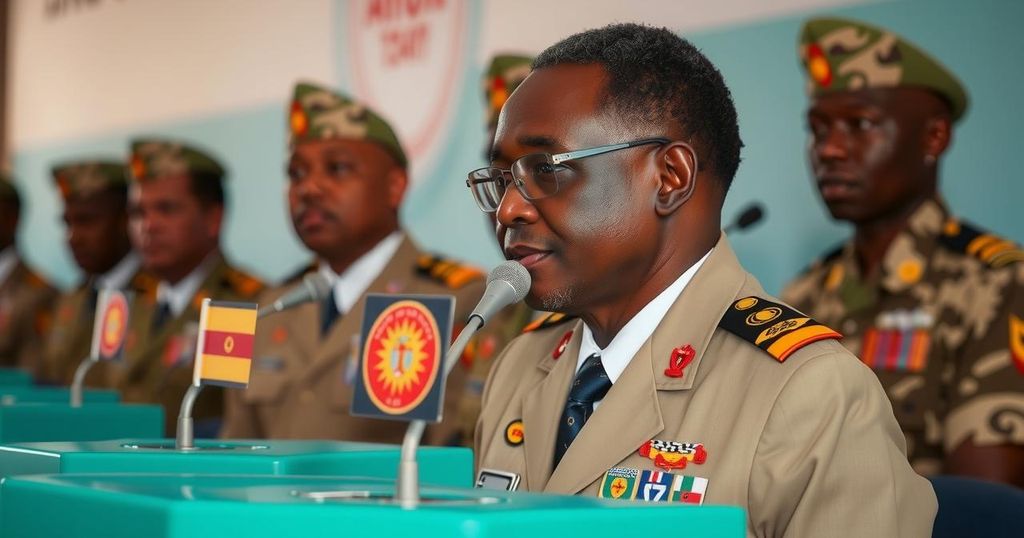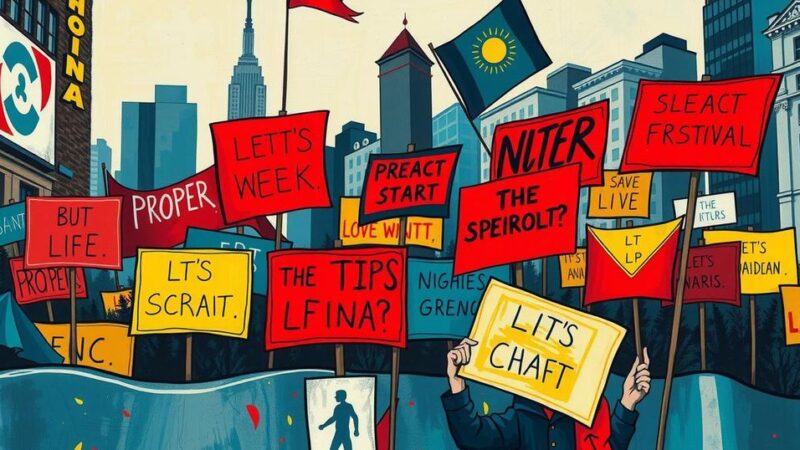Chad is set to hold legislative, provincial, and local elections, framed as a transition to democracy after three years of military rule. The opposition is boycotting the polls, citing electoral fraud, while the ruling government faces scrutiny amid ongoing security threats and media restrictions.
Chad conducts elections on Sunday for legislative, provincial, and local positions, deemed by the government as integral to the political transition following three years of military administration. However, the opposition is boycotting the elections, leaving candidates supportive of Marshal Mahamat Idriss Itno, who ascended to power in 2021, presumably benefitting from an unchallenged political landscape. Opposition leader Succes Masra criticized the voting process, asserting, “It is better to stay at home,” while denouncing prevalent electoral malpractices.
Reports surfaced from the Democratic Party of the Chadian People, highlighting over one thousand missing ballots intended for Bongor. Polling locations will operate from 6 AM to 6 PM, with an estimated eight million voters. Despite the preparations, heightened challenges persist, including threats from Boko Haram and the recent cessation of military agreements with France.
Marshal Mahamat Idriss Itno is under scrutiny as he seeks to legitimize his rule after his father’s lengthy tenure. Chad’s last legislative elections occurred in 2011, with multiple delays attributed to security threats and other pressing factors. While the government markets the elections as a step towards democracy, dissenters label the regime increasingly oppressive, recalling the violent backlash against protests in October 2022. This election is further complicated by restricted media coverage due to the striking online journalists, limiting information dissemination on crucial voting day events.
Chad has been under military rule following the death of longtime leader Idriss Deby Itno in April 2021. His son, Marshal Mahamat Idriss Itno, assumed power and subsequently conducted a controversial presidential election in May 2023, which was largely criticized by opposition parties. The current elections denote an attempt by the government to transition to civilian rule; however, the opposition’s boycott underscores deep-seated animosities and claims of corruption and fraud within the electoral process. Additionally, Chad faces significant security threats from groups such as Boko Haram and challenging relations with international allies, further complicating its political landscape.
The elections in Chad on Sunday represent a pivotal moment in the country’s ongoing struggle with governance following military rule. While the government presents this as a move towards democracy, widespread opposition boycotts and accusations of fraud undermine the credibility of the electoral process. The situation remains tense as political factions clash, with many voters wary of participating in a system they believe is rigged against them.
Original Source: www.barrons.com






